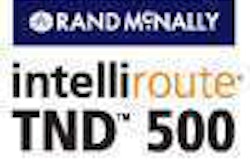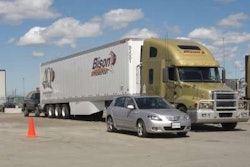Bendix Commercial Vehicle Systems and Bendix Spicer Foundation Brake — providers of commercial vehicle active safety and brake system technologies — on Friday, Sept. 25, warned its employees, customers and other consumers about a business financing scam that has appropriated the companies’ identities.
The companies say they first learned about the fraudulent activity on Wednesday, Sept. 23, when consumers began calling their headquarters to inquire about letters and, more specifically, checks they had received that were marked with the names and logos of both Bendix CVS and Bendix Spicer Foundation Brake, a Bendix joint venture with Dana Commercial Vehicle Products.
According to the companies, the parties responsible for this scam have distributed letters and fake checks to consumers through the U.S. mail, claiming recipients have received a significant sum in accordance with their recent business financing request; while the Bendix name is not used in the letter, a fraudulent Bendix check is enclosed with the mailing.
“We want our employees, customers and consumers to know that this mailing is fraudulent,” says D. Russell Hood, vice president and general counsel for the Elyria, Ohio-based company. “Bendix is in no way responsible for, or associated with, this unsavory activity. Although these documents may appear to be authentic, it is important for the public to know that both the letter and the check are fake.”
Bendix says it already has reported the fraud to the appropriate federal, state and local legal authorities, and that it continues to respond to calls to its facilities throughout North America by recipients of the letters. Bendix says the number of consumers who received the letters is unknown; however, recipients are not limited to those in the commercial vehicle industry in which the companies do business.
The fraudulent checks include both the Bendix CVS and Bendix Spicer Foundation Brake logos and display the “Mellon Bank” name. Letters printed on fake letterhead for “Mike Zack Finance, Inc.” – a company that does not exist – accompany the checks. Bendix advises recipients of the fraudulent mailing to follow these guidelines:
“The old adage rings true — if it looks too good to be true, it probably is,” Hood says. “Now, more than ever, consumers need to be vigilant to ensure they do not become duped by this type of unscrupulous activity. We’re grateful that a savvy consumer brought this matter to our attention, giving us the opportunity to issue a warning about this scam. It is unfortunate that our company identities are being used in this manner, and we hope consumers will question and research this scam before falling victim to it.”









